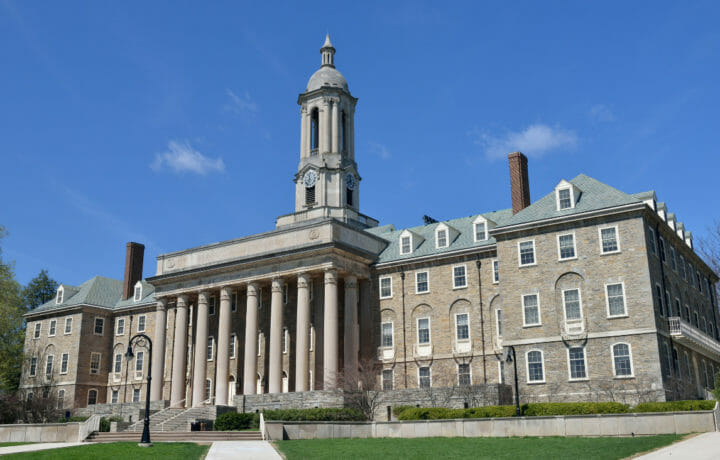What makes a great team? Is it the diversity (whether in thought, background, race, gender) of the team members? What makes a great mentor relationship? Is it having multiple mentors to feed different parts of your professional life?
The Intelligence and National Security Alliance (INSA) believes in both of these pillars…and awards leaders in the DoD/Intelligence Community that are a proponent of them every year.
This year’s winner for the Joan A. Dempsey Award was Meghan Flannery Hayes, the Department Head at Pennsylvania State University’s Applied Research Lab (PSU/ARL). She has used her extraordinary leadership skills, vision, and empathy for others to transform her workplace, empower colleagues, and bring about positive organizational change. She is the lead member of the PSU/ARL’s strategic plan and development team for recruiting and retention, and diversity, equity, and inclusion.
I had the pleasure of interviewing the Intelligence and national security alliance’s Joan A. Dempsey Mentorship Awardee last year, and was excited to be interviewing Meghan and learn more about her team at Penn State.
As a Department Head at Pennsylvania State University’s Applied Research Lab (PSU/ARL), Meghan has the opportunity to work on many different projects and with all different kinds of people. A really interesting project she is working on now is with materials scientists, collaborating with the Defense Threat Reduction Agency – reminded me of my theoretical projects I staffed, including materials scientists with the Army.
For us to be successful, academia plays an integral part in research and development for DoD projects, and the collaboration between industry, government, and consortiums like Meghan’s is critical to combating future and emerging threats.
RECRUITING AND RETENTION
But before combating those threats, you need to have the right people. And be able to hold on to them.
Recruiting and retention is a challenge in any industry and government, so there are a few strategies that the PSU/ARL team has put in place to on the topic of workforce recruiting and retention and how it relates to diversity, equity, and inclusion. Listening should be the biggest priority, and is sometimes the most difficult for certain personalities.
We’ve also seen that offering training and professional development has been beneficial for keeping personnel exercised, but has also bee a great tool in keeping those professionals employed with your organizations, and most of all happy.
Meghan offers her insights on what organizations, agencies, and contractors can do to promote more women in the STEM field, be more inclusive in their recruiting efforts, and why having a solid mentor in your corner is incredibly important as a woman in this field.
The Joan A. Dempsey Mentorship Award recognizes a member of the intelligence, defense, or homeland security communities for their efforts to counsel junior colleagues and develop the future workforce – so Meghan also reflects on a few of her favorite mentors that have helped to mold her to the person she is at now mid-career, and how they have helped her with some recent recruiting and retention strategy.
THIS PODCAST EPISODE IS SPONSORED BY THE INTELLIGENCE AND NATIONAL SECURITY ALLIANCE OR INSA.
INSA is the leading nonpartisan, nonprofit trade association for driving public-private partnerships to advance intelligence and national security priorities.




